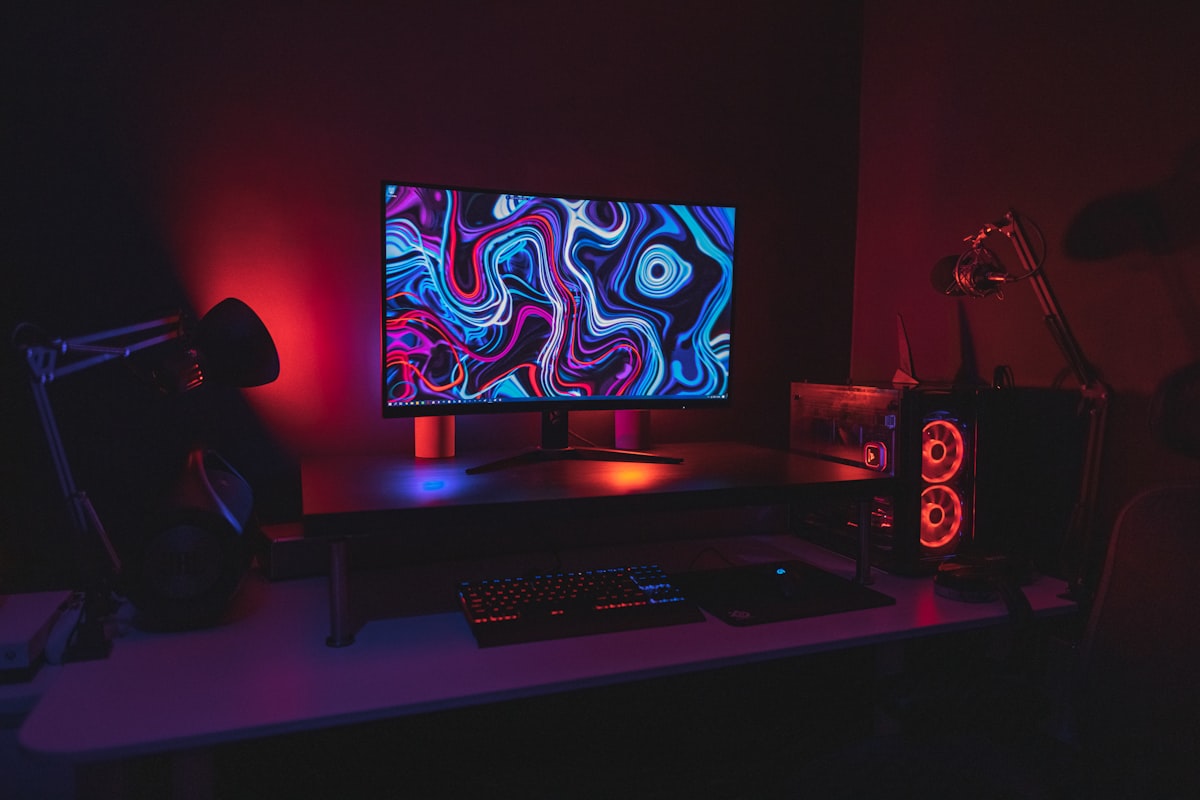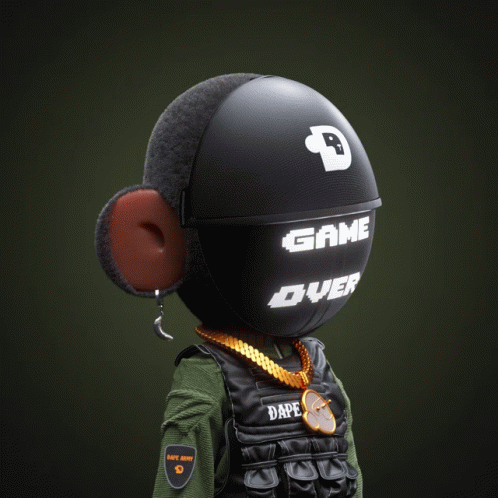Here’s my take on NFT gaming and Decentralized Gaming IDs
Time raced by from Mario to Counter-Strike, yet these games are now relics of the past, as today’s era features interoperability that exceeds a higher level of gaming owing to blockchain technology.

Speaking of video games brings back so many warm memories since they seemed so futuristic from that vantage point.
However, many things have changed as we move into the future of gaming. Online multiplayer has incentivized many players to transition from traditional offline games to the new online gaming era.
In this day and age, it's difficult to imagine a game without online multiplayer.
However, when I refer to traditional games, I mean those still hosted on centralized servers and have not yet adopted blockchain technology.
Games like Counter-Strike and Quake suffer from this major issue due to the lack of a platform for interacting with and connecting inventories with users. Their in-game assets, avatars, currencies, and in-game inventories are limited.
We all painfully understand the possible drawbacks of these games, even though they were the ones we treasured.
Our gaming assets, which we invested time, effort, and money on, can be lost due to scenarios like losing access to our accounts, being banned, or having our items nerfed, all of which are completely beyond our control and grasp.
The icing on the cake is that none of those valuable in-game items can be traded for real-time value.
NFT Gaming
But, as previously stated, they were all relics of the past, as gaming has taken some interoperable turns owing to blockchain technology.
Blockchain technology introduced NFT gaming, similar to traditional games in genres, in-game assets, and inventories. Still, the distinction is that these in-game assets are NFTs with real-world value.

We can easily exchange our in-game assets (NFTs) with other players or move them to another game. We can also buy from one another using cryptocurrencies.
Before, it was all based on levels and advancing to earn higher assets, but now users can buy, sell, and even trade in-game items and objects on multiple platforms that can be used for multiple games.
Due to blockchain technology, each NFT is unique, meaning each in-game asset is unique and has a price tag for its capabilities. One user can only own NFTs, and there cannot be two identical NFTs.
The foundation of NFT gaming is the ability for unique objects or unique in-game assets to be traded on marketplaces outside a game so that users can make income. Blockchain technology strongly upholds the validity of the products by registering each unique item onboard as
The idea behind this is that instead of just being competitive, the reward is also financial, allowing you to aim for something like obtaining a one-of-a-kind armor for your favorite video game character.
You can purchase a copy if you desire one, but you should be aware that copies do not have the same worth as originals and that at least some of their capabilities have been altered.
The global market for NFT gaming is expanding daily, and there is huge potential for profit through NFTs and cryptocurrencies as these games have now evolved into a new, efficient way to market services and products.
A game's worth is determined by the number of players who participate frequently, so NFT alternatives boost a game's worth, draw in plenty of people, and provide them with more interesting opportunities.
World of Web Interoperability
In the Web3 age, interoperability is the essential element that is growing the NFT gaming industry, particularly by filling out more utilities and services by navigating multiple games across the blockchain network.
However, as Web3 applications proliferate, compatibility is also required in various contexts, including gaming.

According to a DappRadar Q3 report, blockchain games and multiverse projects generated $1.3 billion from July to September this year. NFT gaming in the Web3 sector has been hailed as a major entrance for mainstream adoption, and an example of ownership through NFTs has arisen.
But did you know the essential element of NFT gaming is the digital wallets, which are your decentralized digital identity and where you can store in-game assets (NFTs) and exchange and trade with them?
Decentralized IDs

Your digital wallet is your digital identity, which implies that everything you earn and wherever you go, your digital wallet will represent your identity, reputation, and collection.
Blockchain technology allows you to acquire ownership of any in-game assets or avatars you win or buy using NFTs. However, these digital wallets only have arbitrary alphanumeric wallet addresses that identify you, such as alefj39302ipgjforeog430: "This is you." Are you able to recall? Well, no.
Here come NFT domains, a unique type of decentralized technology that allows us to quickly replace random alphanumeric wallet addresses with human-readable NFT domain names like alpha.metaverse.
You remember it now, right? It will also serve as your digital identification wherever you go. This is the basis of a completely player-owned metaverse.
As the metaverse connects reality and virtual reality, it is critical to have a digital avatar with a digital name rather than addressing each other as alefj39302ipgjforeog430, which is unlikely to be remembered.
The Endgame
Similar to how gaming is developing, so is the requirement for a decentralized identity that reflects you on the decentralized web and records your reputation across many DApps as a single entity.

Now is the right time for us to obtain our decentralized IDs, connect our NFT domains, and navigate the metaverse as NFT gaming grows quickly and decentralized IDs become widely used utilities.
The quality of the gaming experience and rewards that developers can design for players to enjoy may very well determine the future of NFT gaming. Still, the utility and superpowers of NFT domains, combined with the collective imagination of the gaming community, will result in fair, enjoyable, and rewarding games that are unrivaled by existing standards.